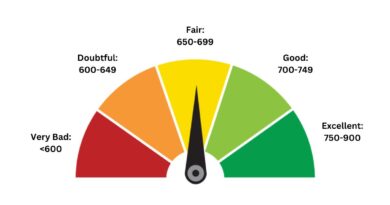How to Get Mortgage Loan Against Property
Table of Contents
Purpose
Some of the basic purposes for which you can avail of this loan are expanding business (MSME), acquiring assets, education needs, marriage, etc. Mortgage Loan Against Property granted against the mortgage of the residential/commercial/industrial property. Personal needs such as marriages, higher education, business travel, medical emergencies, or any unforeseen expenses.
A secured overdraft may be allowed as liquidity finance for taking benefit of lower interest rates, customers can also apply for the takeover of existing mortgage loan/s from other Banks/FI. Some banks offer mortgage loans against agricultural land specifically cooperative banks. As a borrower, you have to declare the end use of the loan in its application form.
What is a loan against property?
Mortgage loan against property is available mostly in Term Loan type but some of the banks also have the facility of overdraft for business accounts. This loan is secured by way of Non-Agricultural Property acceptable to the bank, Term Loan against the property will be repayable in Equated Monthly Installments.
Margin
Generally, In the major public sector and in some private sector banks 25% margin will be maintained on security to be mortgaged. For Example: if the valuation of your immovable property is Rs. 10,00,000/- then the bank will finance Rs. 7,50,000/- maintaining 25% margin. This margin is maintained because of possible fluctuation of property rates in the future.
Repayment Period
This loan against property is a long-term loan where you can get a repayment period of 20-30 years also, as per my experience my opinion is to try to avail maximum repayment period for this loan, and in the future if possible you can repay an additional amount frequently.
Repayment Capacity for Loan Against Property
Any loan financed by banks completely depends on the repayment capacity of the borrower, banks never decide on loan amount only on the basis of the value of the property. If you have property having a valuation of Rs. 50 lakhs but you can’t pay EMI for that amount then how the bank will give you a loan on the basis of the valuation of the property?
What types of property banks accept loans against property
All banks accept only Non-Agricultural Property for this loan, there should be a sufficient residual age of the property. Bank may not accept an open plot as security unless the open plot is compounded completely with signage of the name of the owner thereon. You have to take legal opinion from the bank’s panel advocate to ensure the property has a clear title and is marketable.
Documents required for loan against property
- Identity Proof – Voter ID / Passport / Driving License / Employer ID
- Address Proof – Telephone Bill / Driving License/Passport/Voter ID
- Latest passport-size photographs of applicant, co-applicant, and guarantor
- PAN Card of the applicant, co-applicant, and guarantor
- Income proof for Self employed: I.T. returns for the last 3 years and Balance Sheet for last 3 years
- Income proof for Salaried: Salary slips for the last 3 months and last year’s ITR/Form 16
- Bank statement for the last 12 months
- Property documents: Sale Deed, Sale Agreement
- Property Card, 7/12
- Latest tax-paid receipt
- Construction Permission & Approved plan
- Legal Search Opinion from Bank’s panel Advocate
- Valuation report from the bank’s panel valuer.
Additional documents required in case of takeover:
- Original sanction letter from existing Bank
- Pre-closure letter with an outstanding amount
- NOC from existing bank
- Statement of loan account
- Sale deed copy
- Latest valuation certificate
What are the parameters that determine the eligibility of a loan against property?
| Parameters | Eligibility Criteria |
| Minimum and Maximum Age | Individuals with a minimum age of 18 years and maximum exit age of up to 75 years |
| Loan Tenure | Banks give loans for up to a period of 15 years depending on your age Note: However, some banks may not offer a loan against property for more than 7 years or 9 years. Only selected banks offer mortgage loans for up to 15 or even 20 years. |
| Net Monthly Income | Banks prefer a minimum income of ₹ 40,000 for salaried persons and ₹ 3 Lakh p.a for self-employed. The Minimum FOIR is 60%. FOIR is fixed obligations to income ratio. Fixed obligations include existing EMI on other loans, proposed EMI, and rent. In cases, where income is more than ₹ 40,000, banks offer loans up to a maximum of 65% |
| LTV | Banks typically give mortgage loans for a LTV of 60-70%. The LTV ratio differs by type of property. The LTV ratio is highest for loans taken against residential property, while the LTV ratio is lowest for loans against commercial property. For industrial property – 50 – 55% For residential property – 60 – 75% For commercial property – 60 – 70% |
| CIBIL Score for Loan against property | Banks give loans based on the market value or registered value of the property, whichever is lower. Banks consider a 650 and above credit score to be eligible for a mortgage loan Note: In case of a low CIBIL score, you can be eligible for a few banks or NBFCs with some additional conditions like a higher interest rate and higher margin |
Advantages of Mortgage Loan Against Property
The benefits of a loan against property vary across different lenders and loan schemes. However, some of the common mortgage loan benefits are as below:
- Flexible End Use: Like a personal loan, a loan against property can be used for both personal and business purposes other than any speculative use.
- High Quantum of Loan: A mortgage loan is secured against a high-value asset, which gives you access to a high loan amount, helping you meet your high-end expenses with ease.
- Low-Interest Rate: The interest rate on a secured loan is lower than the interest rate on an unsecured loan. This makes loans against property a cheaper and a better alternative to personal loans.
- Flexible Tenure: The tenure of a loan against a property usually extends to 20 years, giving you the benefit of lower EMIs and greater flexibility of repayment.
- Balance Transfer Facility: A mortgage loan also comes with the feature of a balance transfer, allowing you to refinance your existing mortgage loan to another lender giving lower interest rates or better loan terms.
- Tax Benefits: Interest paid for the loan against property provides tax benefits under Section 37 (1) of the Income Tax Act, 1961. If the loan amount is used for financing a new house purchase, the interest paid on the loan will get you a tax benefit of up to Rs. 2 lakh under Section 24 of the Income Tax Act.
Points to remember before applying for a Loan against Property:
Loans for home construction or purchase are available at a lower rate of interest under a home loan than a mortgage loan. Banks will take an end-use undertaking on the loan against property and will also check the actual usage of the loan on a regular basis. Top-up loans taken on existing loans against property can be used for purposes such as business expansion, education, medical expenses, etc. You can check Important points before taking any loan.
Step 1: Check eligibility and EMI of Mortgage Loan against Property
Check the eligibility requirements for the loan for which you are applying (general information regarding this eligibility can be found on the bank’s website or at the bank’s branch). From this, you can deduct the approximate amount of the loan, as well as calculate the monthly EMI that you can easily repay based on your current net income and financial capacity. Also, check your loan eligibility based on your age, net income, current liabilities, type of assets, LTV ratio, and other factors.
Step 2: Check property approval status and legal documents
The property to be borrowed must have a clean title of the property, all statutory and government approvals, building permits, approved maps, proof of completion as well as a complete set of property documents. Therefore, to get a loan on a property, choose a property with all records and a clean title. Also, it is easy to get a loan on a residential property with a low-interest rate and the property should be the first choice for this loan option.
Step 3: Compare the interest rates of different banks
Once you know your eligibility and the assets for which you can borrow, you can compare different mortgage loans of different banks and their interest rates.
A choice between fixed and floating rates for Mortgage Loans against Property
Fixed rates come at a slightly higher interest rate than floating-rate loans and interest rates remain constant over the term of the property loan. In floating-rate loans, interest rates are reset at regular intervals in response to changes in external benchmark rates, such as repo rates. Most of the property loans in India today are floating-rate loans as they allow interest rates on LAPs to vary according to current interest rates. Most people accept this type of interest rate.
You could also consider the option of an overdraft facility with a property loan. The overdraft facility allows you to deposit additional amounts in your loan to the property overdraft account. That way, you can save on your total interest. This loan is recommended for self-employed professionals who usually have extra cash. Interest rates on overdraft loans are slightly higher than the interest rates on regular mortgage loans.
Step 4: Compare other fees and loan parameters of shortlisted banks
Banks charge additional fees on property loans in addition to LAP interest rates, so you should be aware of all additional charges and fees, including property loans, prepayment fees, processing fees, insurance premiums, and other charges levied by shortlisted banks.
Step 5: When choosing a bank, consider the other facilities available in the bank.
When you decide to borrow, you should also consider other service and transparency criteria. Some of these factors are turnaround time (TAT), the time required for loan approval, home delivery services, and transparency in the loan process. You also need to understand the trends and changes in repo rates over a period of time.
What is the difference between a home loan and a Mortgage Loan against Property?
| Home Loan | Mortgage Loan Against Property |
| Home loans are given to build a house or to buy property from residents. | Mortgages can be used for any purpose. |
| In a home loan, you can take a place to build a house and build a house on it. | A mortgage loan is a loan you mortgage your residential, commercial, or industrial property. |
| Home loan interest rates are lower than mortgage loans. Currently, interest rates on home loans start at 6.40%. | Mortgage interest rates are relatively high, with mortgage interest rates currently starting at 8% to 8.50%. |
| Home loan interest is exempt from income tax | You do not get any income tax deduction on interest on the mortgage loan. |
| The home loan repayment period is up to 30 years | The mortgage loan has a repayment period of up to 15 years |
Important Points To Consider Before Buying A Home
Different Factors Affecting Loan against Property
- Age of the applicant: The age of the applicant is the lesser the repayment tenure and the higher the EMI.
- Income: Higher the net income you will get the higher the quantum of the loan.
- Existing EMI: EMI of existing loans will minimize your repayment capacity.
- Purpose of loan: Business-purpose loans have lower interest rates as compared to personal-purpose loans.
- Tenure of the loan: Longer tenure lowers the interest rate.
- Market evaluation of the property: Quantum of the loan depends on the valuation of the property.
- Age of the property: Bank considers the repayment period of the loan for the residual life of the property.
- CIBIL score: It directly affects your sanction of a loan.
- LTV ratio: Bank will charge a lower interest rate for a higher Loan to Value ratio.
- Property documentation: Bank will check the complete documentation of the property offered as security.
Frequently Asked Questions
Q1. What can a Mortgage Loan against Property be used for?
Any loan on residential or commercial property can be used for both personal and commercial purposes. Banks usually do not ask you for details on where to use the loan amount. However, if you are going to use this money in your business, be sure to tell the bank as you can get a discount on the interest rate.
Q2. How does the lending bank determine the amount I can get as a loan on the property?
Basically, the bank sees your ability to repay. To calculate the loan amount, your income, age, qualifications, if you are going to take a co-borrower, their income, assets, liabilities, stability, continuity of business, and history of savings are taken into consideration. However, the eligibility of the loan, in general, does not exceed 60 percent of the market value of the property.
Q3. Can I be a co-applicant for a Mortgage Loan against Property? If yes, who could be the co-applicant?
You can take your spouse as a co-applicant and considering their income also you can get a maximum loan. However, if the property is co-owned, all co-owners must be co-applicants. Also, all the debtors in your debt should be of blood type.
Q4. What is the processing fee for such a loan?
The processing fee for a loan on any property varies from bank to bank and is generally 1 to 1.5 percent.
Q5. How is the interest rate on a property loan calculated?
Interest is calculated on a daily reducing balance. This interest is adjusted in your EMI so the debit interest is not charged separately from you.
Q6. What is the loan term?
The term of the property loan is a maximum of 15 years, subject to the condition that it does not exceed your retirement age. Repayment tenure of Mortgage Loan Against Property can be extended if the income from the business.
Q7. How do I repay my loan?
You repay the loan in equal monthly installments (EMIs) with principal and interest. If you want to repay the loan early, you can repay it.
Q8. What do I have to pay as collateral?
To take advantage of this loan, you need to mortgage your property. You can make this mortgage with Equitable Mortgage or Simple Mortgage. You can give insurance to the bank as security of insurance policy or any other assignable financial instrument. Please make sure the title of the property is clear, salable, and load-free. There should be no pending case in any court on such property.
Q9. Can I repay the loan ahead of schedule?
Yes. Prepaid is possible and there is no prepayment fee if you repay the loan six months after availing the loan if you repay from your own funds without transferring the loan.
Q10. What happens if you don’t pay a loan against the property?
If you fail to repay your loan as per terms and conditions then your loan slips to NPA and the bank issue a SARFAESI notice after 90 days bank will symbolize possession of your property and auction your property. If you want to know the detailed NPA LOAN Recovery process then read this article.
Q11. Is insurance mandatory for loans against the property?
Insurance of property is mandatory for loans against property but banks will not force you to loan insurance or loan protection plan insurance.
Q12. Can I get a loan against the property without income proof?
No, You can’t get a loan against property without income proof, the loan amount is fixed by the bank on the valuation of the property as well as repaying capacity of the borrower.
Q13. Is an original document required for a loan against property?
If the bank’s panel advocate suggested that the property is mortgaged by way of an Equitable Mortgage then the Original Sale deed and other original documents are to be deposited to the bank for the creation of an equitable mortgage. In case the Original Sale deed is not available then some banks accept certified copies of the sale deed but it totally depends on the bank’s decision. Bank may suggest for Registered mortgage also. If you want to know the Difference between Equitable Mortgage and Registered Mortgage then check this article.





Pingback: NPA Loan Recovery Process in India
Pingback: Difference between Equitable Mortgage and Registered Mortgage